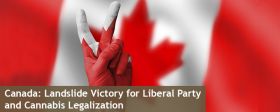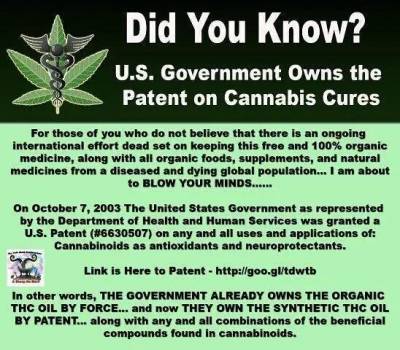On Monday cannabidiol (CBD) producers and distributors in the UK started to receive letters from the Medicines and Healthcare Products Regulatory Agency (MHRA) demanding that they cease to sell, supply, promote, advertise or process orders for CBD products within 28 days. The letters stated that CBD now satisfies the definition of a medicinal product. The revised definition will leave UK patients with no legal access to CBD.
Officials with the MHRA are due to release a statement tomorrow, Oct. 7, to clarify the position. A spokesperson from the agency released the following statement:
We have come to the opinion that products containing cannabidiol (CBD) are a medicine. Products for therapeutic use must have a medicines’ licence before they can be legally sold or supplied in the UK. Products will have to meet safety, quality and effectiveness standards to protect public health.
We have written to UK CBD stockists and manufacturers to inform them of our view. These products will require a marketing authorisation to be granted before they can be legally sold, supplied or anywhere advertised in the UK.
Individuals who use CBD for treatment should take questions to a health care professional, the MHRA said, adding, “We can provide regulatory guidance to any company who may wish to apply for a licence.”
Peter Carroll of the End our Pain campaign, a UK medical cannabis patient advocacy group, said that “we agree that there is a need for more control in the CBD market to protect people from unscrupulous suppliers and to make sure that people understand what they are taking.” But, he added, “we fear that today’s sudden move will cause huge distress to people who rely on these products. It will drive many people to look for CBD on the black market. It is a sledgehammer to crack a nut.”
This decision further complicates the status of medical cannabis in the UK. The definition of CBD, one of the main active ingredients in cannabis, as a medicinal product is in stark contrast with The Misuse of Drugs Regulations 2001 scheduling of cannabis as having “no medicinal value”. This adds another exception to the 2001 Regulations, the other being Sativex, a cannabis-extract which is available in very limited circumstances for some MS suffers.
CBD has been soaring in popularity recently as many people purchase it in a variety of forms either as an aid to relaxation, in an attempt to quit nicotine, or for a number of serious ailments and medical conditions. CBD has been linked to a number of potential medical applications with strong anecdotal evidence of its efficacy in treating epilepsy, anxiety, depression, and multiple sclerosis, among many other conditions.
GW Pharmaceuticals, producer of Sativex, released the results of its latest phase III clinical trial for Epidiolex, a liquid formulation of CBD, on September 26. The company hopes to achieve approval in Europe, but the product is still at trial stage and not available for patients. The product is in development for the treatment of a number of conditions, specifically rare pediatric epilepsy disorders including Dravet Syndrome and Lennox-Gastaut Syndrome.
It is unclear how long, or costly, the license application will be for current CBD vendors and whether any will in fact be successful. Medicinal products must meet certain standards before being granted a marketing authorization. Interestingly, the MHRA states that “proof of efficacy generally relies heavily on clinical trial evidence, and no products must be marketed pending any license application.” To date there have been some exciting but very limited trials around CBD but there is a lack of full clinical trial evidence. The process could take years, and it is unclear whether the results of the Epidiolex trials will be relevant to other CBD products or limited to a unique GW Pharmaceutical formulation.
There have been many concerns over the unregulated CBD market. Until now, companies were able to sell CBD products so long as they did not make any medical claims about the product. There were stories of companies breaching this condition as well as providing products of dubious origin and quality. Regulation and standards of some sort will likely be welcomed by the industry but there are serious concerns over the cost, time and process involved in making license applications.
The short deadline of 28 days will come as a worrying shock for the thousands using CBD. Many will question whether this very short deadline is in the best interests of patients. For the time being we simply don’t know how long it will be before patients relying on CBD will be able to legally access their medicine in the UK.












